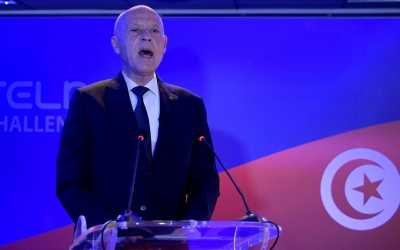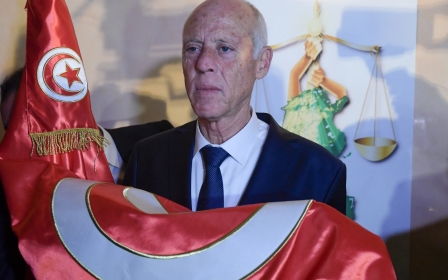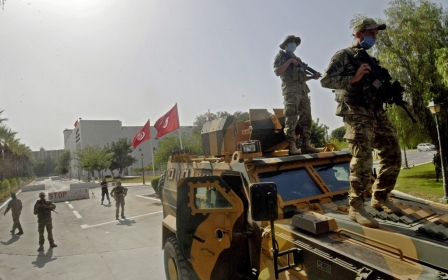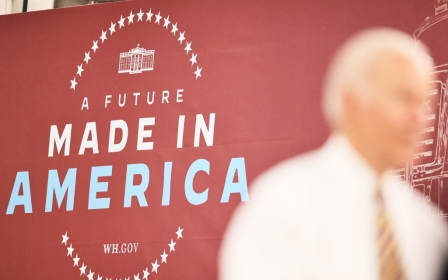Tunisia's labour union and Ennahda party oppose suspending constitution
Both Tunisia's powerful labour union and the biggest party in its parliament on Saturday signalled their opposition to any attempt by the president to suspend the constitution and offer his own version unilaterally.
President Kais Saied seized governing powers on 25 July, citing an emergency clause in the constitution to dismiss the prime minister and suspend parliament, a move his political critics have called a coup.
About a month later, Saied suspended the parliament indefinitely, calling the institution a "threat to the state".
The president's manoeuvre has thrust Tunisia into its biggest political crisis since the 2011 revolution that ousted an autocratic regime and introduced democracy.
Earlier this week one of Saied's advisers, Walid Hajjem, said the president was planning to suspend the 2014 constitution and offer a new version himself via a referendum.
However, the UGTT labour union on Saturday called for legislative elections to allow a new parliament to debate the constitution and change the political system, an implicit rejection of what Hajjem said Saied was contemplating.
The UGTT, which has more than a million members, is one of the most powerful political forces in Tunisia and was instrumental in bringing together rival political blocs after the 2011 revolution.
The moderate Islamist Ennahda, the biggest party in the now-suspended parliament and a key player in successive Tunisian governments, also rejected any such move.
In a statement, the Ennahda party said the 2014 constitution formed the basis of Tunisia's political and social contract and the legitimacy of both its parliament and president, and that deviating from it would indicate a retreat from democracy.
Government in limbo
Despite indefinitely extending emergency measures, Saied has rejected accusations of a coup.
But nearly seven weeks after his intervention, Saied still has not presented a roadmap for his plan, triggering fears of a return to authoritarian rule in the country.
He retains widespread popular support, however, particularly among younger people.
Meanwhile, reports of a possible change of constitution have been met with widespread criticism among Tunisian politicians - including some that voiced support for Saied's 25 July intervention.
Western democracies, whose donations have propped up Tunisia's battered public finances in recent years, have urged Saied to quickly appoint a new head of government and "return to a constitutional order".
"We urge a swift return to a constitutional order, in which an elected parliament plays a significant role," a statement by the G7 group of advanced economies said on Monday.
Middle East Eye delivers independent and unrivalled coverage and analysis of the Middle East, North Africa and beyond. To learn more about republishing this content and the associated fees, please fill out this form. More about MEE can be found here.






